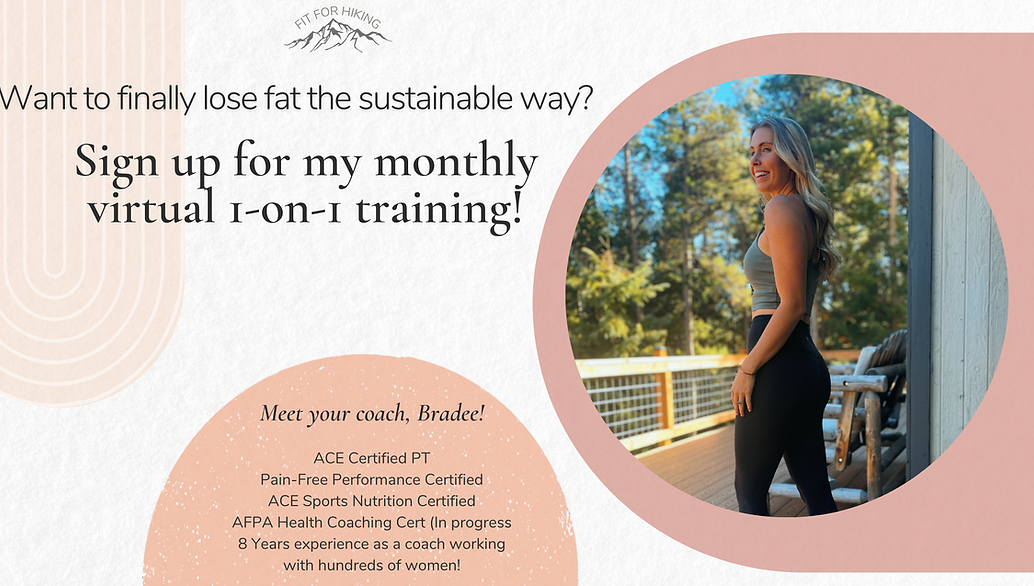Have a fat loss goal and wondering how important cardio is? You’re not alone. After working in the fitness industry for over 8 years now, this is by far one of the top questions – is cardio most effective for fat loss? How much cardio should I be doing if I want to burn fat? So today we are going to dive into this hefty topic and hopefully dispel some myths around cardio, as well as giving you clarity on the role cardio should play in your fat loss journey.
Before we go any further, let me start by making one thing very clear: fat loss comes down to energy balance. Calories in vs. calories out. You’ve probably already heard this. But it becomes a bit more nuanced when certain factors come into play, such as long term excessive dieting. So while in theory fat loss is quite simple, there are ways to be smart and strategic with fat loss, to create long term success versus a quick fix. Let’s dive in!
Cardio VS. Weight Lifting for Fat Loss
The shortest answer here is that cardio is not actually necessary for effective fat loss. Weight training has been proven to be much more worthwhile because of the long term success. Sure, cardio burns more calories in the moment than strength training. So it can be easy to think that grinding out an hour on the treadmill is the answer, right? Wrong. Here’s why:
-While this will cause initial success in the fat loss department, this tricky little process called metabolic adaptation starts to take place over time. Metabolic adaptation simply means that your metabolism gets used to this amount of energy output, and adapts. Meaning the same cardio workout that once allowed you to see results is no longer doing the trick a few weeks or months later.
-Strength training actively increases your muscle mass, which in turn increases your resting metabolic rate. Therefore, strength training works with your metabolism instead of against it. This is KEY. The more muscle you can keep on your frame while in a calorie deficit, the more effective your body will continue to be at burning fat.
-Cardio makes you hungrier! How many times have you come back from a run or vigorous cardio sesh just to annihilate a burger and milkshake because you “earned it”. Unfortunately, we grossly overestimate how many calories we burn during a cardio session, and often overcompensate in calories completely undoing the benefits of that cardio.
-Too much intensity isn’t a great thing on the body. So whether we are looking at long bouts of cardio, HIIT, or nonstop weight circuits that are actually just cardio in disguise, it’s important to note that these types of workouts increase cortisol (your stress hormone) big time. Which is why more isn’t always better, and more intense definitely isn’t always better. Excess cortisol paired with a lack of recovery can lead to lingering inflammation in the body, actually inhibiting fat loss!
When it cardio helpful?
-When you’re trying to condition your body for a cardio-heavy activity, such as hiking, a race, long bike rides, etc.
-For general heart health. Hear me on this: in moderation, adding some cardio to your routine is a great thing. Just because it isn’t the most effective for fat loss doesn’t mean it has zero value.
-If you have a time-sensitive fat loss goal and want to use cardio as a final card played to expedite the process. What we don’t want is extremely consistent cardio 5x per week as your main means of fat loss, leading to metabolic adaptation as I talked about above.
-Endorphins! Some people absolutely LOVE getting out for a run, their weekly spin class, or spending an hour swimming laps. It’s important to incorporate what you enjoy into your fitness regimen, otherwise you’re far less likely to adhere to it.
-If you are extremely sedentary during the day and need help getting those steps in!
The role of nutrition
The reality is, the biggest player in the fat loss game is actually nutrition! You can do all the strength training and/or cardio in the world, but if you are ending the day in a caloric surplus, you will still gain fat. This is why so many people spin their wheels for YEARS, exercising hard and still wondering why they aren’t leaning out at all. Here are the most common scenarios:
-Proper exercise (lifting weights) but eating in a calorie surplus = muscle gain + fat gain. This is the look some people call “bulky”. And no, it’s not because of weight lifting. It’s because that individual is eating in a surplus.
-All cardio and restrictive eating = skinny with an unhealthy metabolism. When insufficient calories are paired to excessive cardio, muscle mass is diminished and the metabolism becomes down-regulated. This is why so many people end up in a “dieting hole”, where they gain fat even eating low calories. This is a sucky place to be.
-All circuit-based workouts (think Orange Theory, F45, most group workouts, and HIIT) and inconsistent nutrition = very little physique progress ever made. Without the proper progressive overload of strength training, muscle mass will not increase significantly. Paired with sporadic dieting, overeating, and high cortisol, you’ll likely always be taking one step forward and two steps back (this was me for YEARS).
-Proper exercise and eating healthy without monitoring calories/portions = weight maintenance or even gain. This is a tricky one! Many people still get stuck on “but I’m eating healthy!” without realizing that their daily intake is through the roof, even though it’s made up of healthy foods. The quality of your food matters for satiety and health, but the QUANTITY ultimately dictates fat gain, loss or maintenance.
What’s the right formula for fat loss?
I spent years getting just about all of this wrong before really digging into learning how healthy, long term fat loss is achieved. I fell victim to fad diets, excessive cardio, restrict-binge cycles, and everything in-between. It’s beyond frustrating to put effort into something that matters so much to you, only to feel like you’re constantly failing. Have you ever been there too?
Getting fat loss right comes down to:
-Finding the correct calorie range for YOU based on your current body size, dieting history, metabolic considerations, gender, muscle mass, and so much more.
-Proper strength training with built-in progressive overload and quality programming
-Adequate daily steps
-Eating healthfully to achieve satiation and get the proper nutrients
-Eating enough protein to encourage muscle gain/maintenance even while in a calorie deficit
As you can see, it’s not a one-size-fits-all equation. I highly recommend working with a knowledgeable coach who can address each of these things and can create a program/plan that fits YOU. Could you figure it out on your own? Maybe you could! But all this will do is make the process 20x longer, more frustrating, and can even lead to metabolic dysregulation when done improperly. If it matters enough to you, invest in a coach. You’re ultimately investing in yourself and seeing the long term results you’ve been wanting for so long.
Right now I am offering monthly enrollment in my 1-on-1 Accountability Program which provides you with the exact roadmap you need for success, tailored to YOU. You will get:
- Clarity in your workouts – knowing exactly what to do each day and that you WILL see results.
- Daily workouts tailored exactly to YOU; what equipment you have, your unique goals, your limitations and your schedule.
- Uncomplicated, non-restrictive nutrition guidance. Instead learn how to understand calories, portions and receive monthly healthy recipes!
- The accountability + support to follow through. My main goal is to not let you stop showing up! That combined with the Facebook group community so that you have multiple people in your corner to help you stay consistent.
CLICK HERE to schedule a time to hop on a call with me to see if this is a good fit for you!

I hope this article has been helpful in shedding some light on the role cardio plays in fat loss! Drop any questions you have in the comments!
Your coach + friend,
Bradee

Be The First To Comment